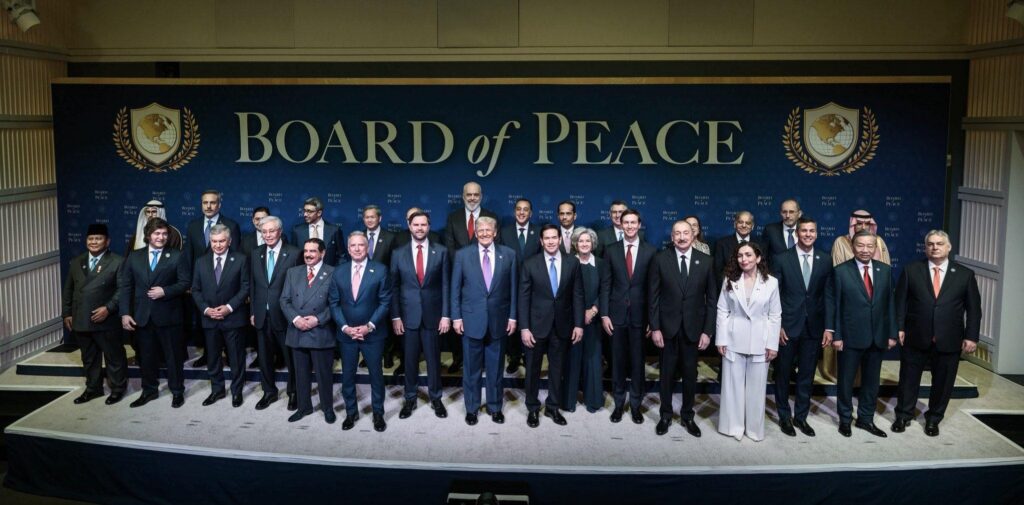If you’ve heard the term “rescission” in the news lately and found yourself Googling, you’re not alone. Like impoundment and scales of assessment, budgetary chess on Capitol Hill is commonplace this time of year.
While rescissions may lack the drama of a government shutdown or the high-stakes brinkmanship of debt ceiling negotiations, powerful maneuvers such as these cancel funding already authorized by Congress, often with significant implications for U.S. foreign policy and global institutions like the United Nations.
As funding for international organizations becomes increasingly contested, the ways in which the U.S. funds — and defunds — international bodies carry strategic significance. Rescissions now play an outsized role in undercutting U.S. leadership on the world stage.
As funding for international organizations becomes increasingly contested, the ways in which the U.S. funds — and defunds — international bodies carry strategic significance.
What is a Rescission?
A rescission is the cancellation of budget authority that has already been enacted — like a retroactive cut. Under the Impoundment Control Act of 1974, the President may propose a rescission, which Congress must affirm within 45 legislative days. If Congress fails to do so, the funding is automatically released as originally designated. That failed rescission request also means that the President may not propose to rescind the same funds again (think of it as budgetary double jeopardy).
(Congress — which Constitutionally holds the purse strings — can also impose rescissions through appropriations legislation, typically without requiring executive input. We’ll tackle that topic in a future post.)
While rescissions have been procedurally routine in the past, their impact is anything but. Rescissions function as instruments of budgetary constraint and vehicles for political signaling, often targeting discretionary accounts vulnerable to shifting ideological tides, including foreign aid and multilateral funding.
Since 1974, presidents have submitted a total of 1,178 rescissions, of which 461 have been approved. President Reagan flexed the most muscle on rescissions, with $15 billion in cuts through 101 rescissions — about 4% of discretionary spending at the time. President Clinton, the last president to preside over a budget surplus, was also the last to see a presidentially-proposed rescission enacted.
U.S. Contributions to the UN
The U.S. is the single largest contributor to the UN system, providing around 22% of the UN’s regular budget and about a quarter of the budget for peacekeeping operations. In addition, the U.S. has historically provided billions in voluntary support to specialized agencies and programs. This fiscal weight affords Washington significant influence within the UN system. It also, however, makes UN funding a perennial flashpoint in domestic politics.
On one side, critics cite bureaucratic inefficiency or misaligned priorities as reasons to curtail funding. On the other, advocates counter that rescissions undercut U.S. leadership and the ability to advance our national interests through burden-sharing.
In the (opaque) background, rescissions arbitrate these debates without comprehensive policy review — and with significant strategic consequences. That’s also why rescissions affecting UN funding have increasingly been suggested to assert policy preferences without engaging in the harder work of broad legislative debate, much less compromise.
Rescissions arbitrate debates without comprehensive policy review — and with significant strategic consequences.
For instance, in FY 2019, the Trump Administration attempted to rescind more than $4 billion in unobligated foreign assistance — much of it destined for UN agencies and affiliated programs. Although Congress ultimately declined to act on the proposal, the initiative itself caused chaos among diplomatic counterparts and raised doubts about U.S. reliability as a multilateral partner.
More Than a Budget Line
Fact is, any modest financial impact of individual rescissions to the U.S. federal budget masks their profound symbolic and operational costs.
Logistically, UN agencies rely on predictable funding flows to execute complex operations across fragile and conflict-affected states. Abrupt funding reversals, even in unobligated accounts, disrupt staffing, procurement and service delivery. The consequences are not abstract; refugee camps go under-resourced, peacekeeping mandates face logistical shortfalls and humanitarian responses lose critical agility.
Abrupt funding reversals, even in unobligated accounts, disrupt staffing, procurement and service delivery. The consequences are not abstract; refugee camps go under-resourced, peacekeeping mandates face logistical shortfalls and humanitarian responses lose critical agility.
Strategically, rescissions erode the credibility of U.S. leadership. When Congress approves an Executive request to retract funding, it signals conditionality in America’s commitment to the rules-based system we helped to construct. This vacuum creates opportunity — especially for geopolitical competitors such as China, which has steadily increased its footprint in the UN through financial contributions and personnel placements.
The Cost of Cutting
In the short term, a rescission might save a few hundred million dollars — a fraction of the federal budget. In the long term, it can weaken institutions that help prevent war, deliver aid and stabilize fragile regions — all of which align with core U.S. interests.
In this moment of global flux, the U.S. faces a choice not simply about how much to fund the UN, but how to wield the instruments of budgetary policy in a way that reinforces its strategic posture. Rescissions are not ideologically neutral. They are a form of signaling — one that can affirm leadership or sow doubt.
Rescissions are not ideologically neutral. They are a form of signaling — one that can affirm leadership or sow doubt.
As international order faces growing strain, the U.S. would be well served to consider how even some of the more arcane budget decisions echo far beyond Capitol Hill.




